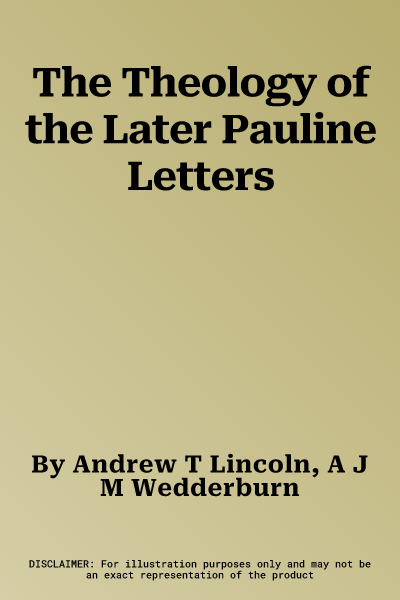Andrew T Lincoln
(Author)The Theology of the Later Pauline LettersHardcover, 25 June 1993

Temporarily out of stock
Free Delivery
Cash on Delivery
15 Days
Free Returns
Secure Checkout

Part of Series
New Testament Theology
Part of Series
Cambridge Concise Histories
Print Length
197 pages
Language
English
Publisher
Cambridge University Press
Date Published
25 Jun 1993
ISBN-10
0521364604
ISBN-13
9780521364607
Description
Product Details
Authors:
Book Format:
Hardcover
Date Published:
25 June 1993
Dimensions:
21.59 x
13.79 x
1.6 cm
Genre:
Christian
ISBN-10:
0521364604
ISBN-13:
9780521364607
Language:
English
Location:
Cambridge
Pages:
197
Publisher:
Weight:
344.73 gm